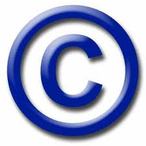Copyright Attorney
Copyright infringement litigation

The world of rational property is filled with companies and people who live in the color of gray. Attorneys for your plaintiff assert Ip rights with respect to their customers. Attorneys for defendants debate that no rational property rights exist or that their customers are not infringing on those rights. In this world of copyright regulation, the tension between those asserting rights and people protecting is ever present. Civil Lawyer for copyright owners register copyrights with the U.S. Copyright laws Office with respect to clients. They assist their clients understand how to effectively acquire unique works authorized so they can provide leverage and enforcement. In reality, you are unable to sue in federal court more often than not unless your copyrights are authorized with the U.S. Copyright Office. An excellent copyright lawyer will then monitor the internet for possible violation. When an infringer is determined, lawyers will send out copyright infringement threat notes to alleged violators asserting ownership rights. Due to these you should know regarding copyright infringement litigation.
How copyright infringement litigation can help: On the defense side, a primary review of the copyright registrations will see whether the registration leverage exists. Of course, typical law copyrights can also be asserted. The lawyer will compare the alleged copyright because of their clients apparently infringing work and provide an assessment of whether or not there's a high risk of liability. If the copyright is registered, there is a potential extra legal responsibility of $150,000.00 plus lawyers' fees in statutory damages for bad faith violation. The prospect of statutory problems under copyright law is normally one of the most vital issues the lawyer will focus on. One generally overlooked choice for both defendants and plaintiffs is to have your attorney file a declaratory judgment action in government court. A declaratory judgment action asks the court to declare rights between your parties; for example, whether or not copyright ownership exists or whether there's infringement.
How copyright infringement litigation can help: On the defense side, a primary review of the copyright registrations will see whether the registration leverage exists. Of course, typical law copyrights can also be asserted. The lawyer will compare the alleged copyright because of their clients apparently infringing work and provide an assessment of whether or not there's a high risk of liability. If the copyright is registered, there is a potential extra legal responsibility of $150,000.00 plus lawyers' fees in statutory damages for bad faith violation. The prospect of statutory problems under copyright law is normally one of the most vital issues the lawyer will focus on. One generally overlooked choice for both defendants and plaintiffs is to have your attorney file a declaratory judgment action in government court. A declaratory judgment action asks the court to declare rights between your parties; for example, whether or not copyright ownership exists or whether there's infringement.
